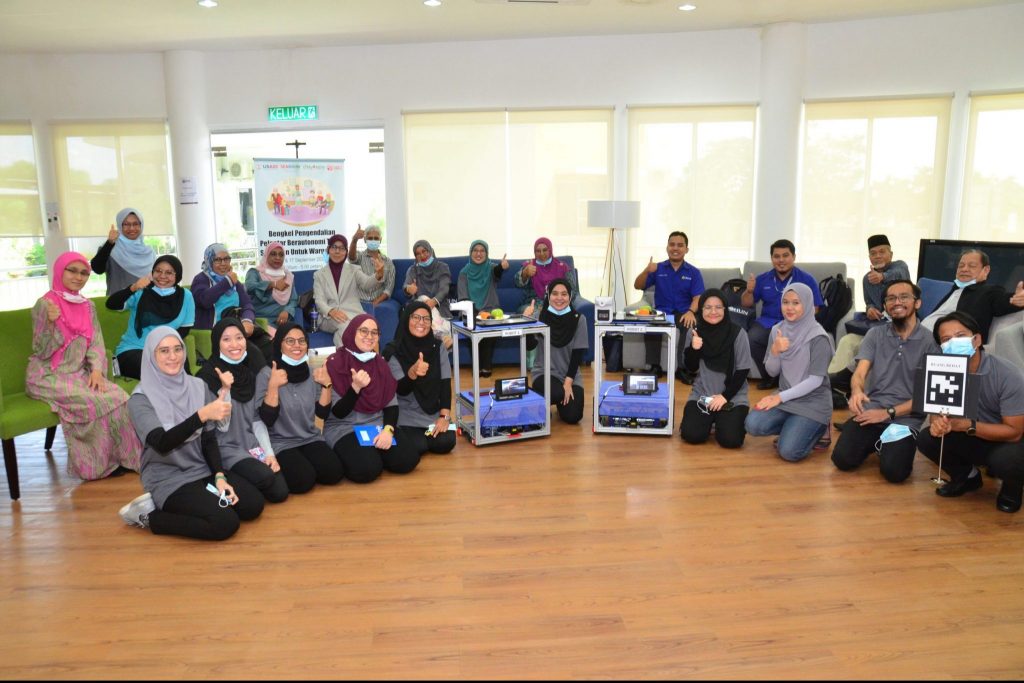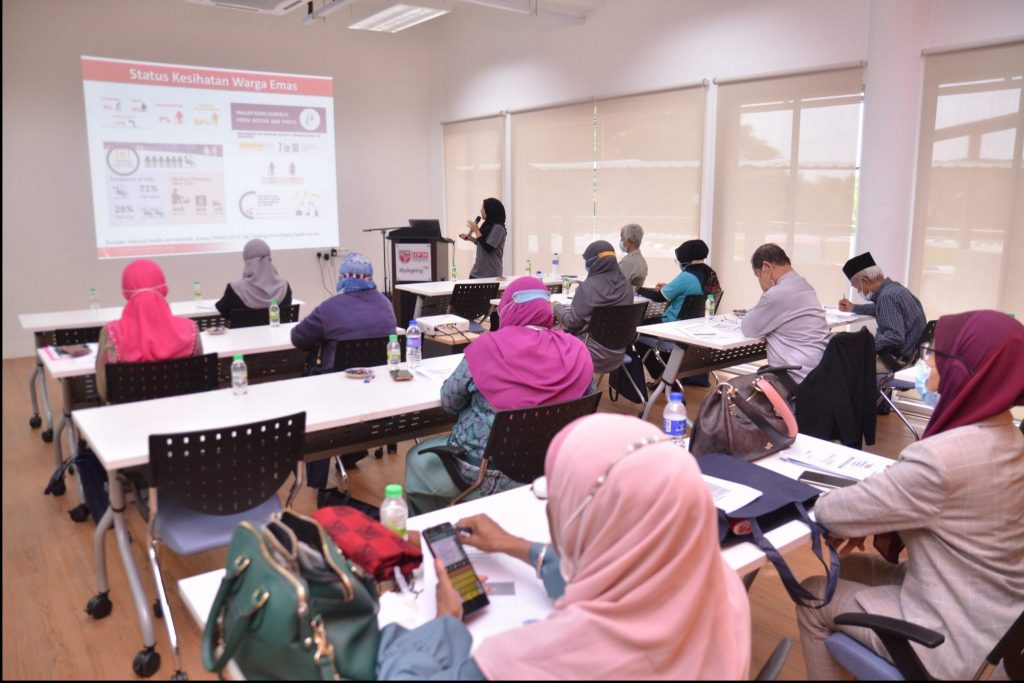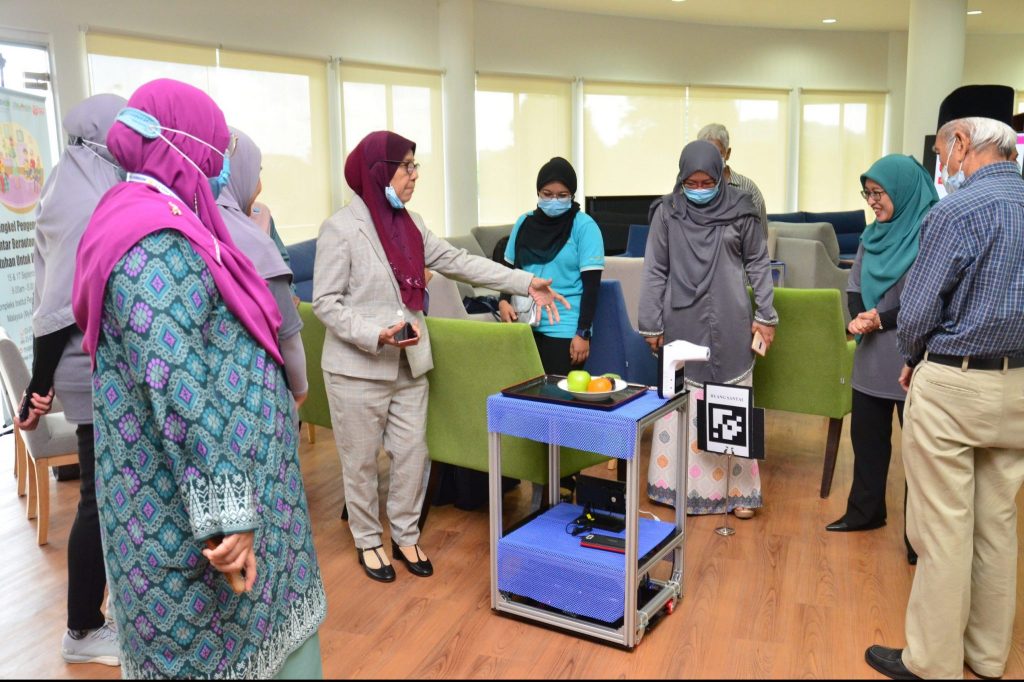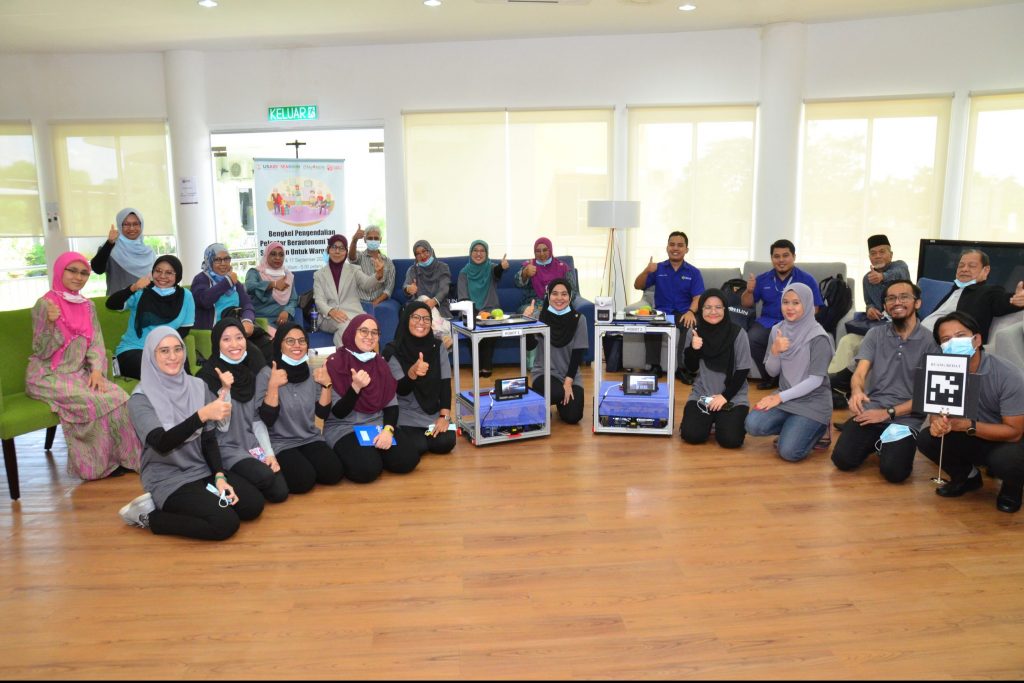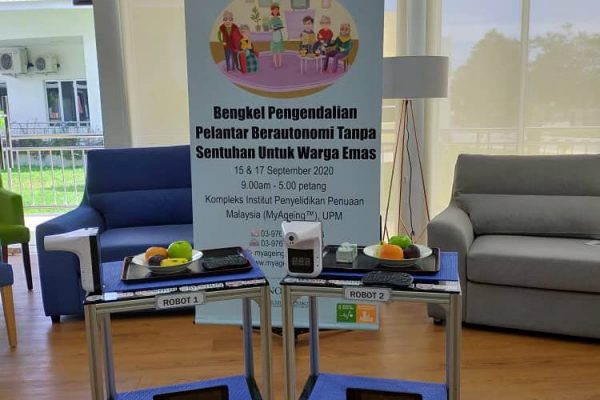2021 Special Prize for COVID-19 Response
Older persons account for roughly 11 percent of the Malaysian population, and they were the hardest hit by the COVID-19 pandemic. Six out of every 10 COVID-19 deaths occurred among people aged 60 years or older, many with underlying chronic conditions. Healthcare systems and eldercare systems were suddenly under new pressures to adapt to the new circumstances.
Contactless delivery suddenly became a critical tool to limit the spread of the disease and facilitate social distancing. As such, delivery robots and self-driving delivery vehicles gained prominence among hospitals, e-commerce companies, restaurants, and elsewhere to serve patients, customers, and staff.
The Malaysian Research Institute on Ageing, the national institute responsible for research on aging and older persons based at Universiti Putra Malaysia, launched a program in 2020 to respond to this need, developing an autonomous robot that could make contactless deliveries in long-term care settings. The autonomous robotic platform is capable of sensing its environment and operating without human involvement.
Deliveries in an institutional living situation include meals, medications, and other daily necessities. The robot is also able to perform basic health screening, like measuring temperatures. Using deep learning and LIDAR technology, the robotic platform navigates the facility unmanned, minimizing the face-to-face interactions between staff and residents, and promoting the practice of social distancing.
The Institute also realized, however, that those working in these institutions would need assistance to learn to use such technology, so they developed comprehensive guidelines and instructional materials and also carried out on-site training and workshops to build the capacity of caregivers. Lectures covered general information on COVID-19, the impact of COVID-19 on older persons and how to minimize the risk of infection, as well as the possibilities that the autonomous robot offered. This was supplemented with hands-on sessions that allowed participants to try to operate the robot. Sessions were conducted according to the Malaysian government’s protocols in terms of physical distancing, use of masks, and so on.
During the initial pilot period that began in late August, the team received suggestions on ways to improve the robot, including the addition of a speaker and microphone that allows caregivers and older persons to communicate, and a “home” function that recalls the robot to the control station with the push of a button.
KEYS TO SUCCESS
- Thanks to the Malaysian Research Institute on Ageing’s interdisciplinary approach—combining gerontology, geriatrics, and gerontechnology—they were able to quickly identify a need in long-term care facilities during the pandemic and develop a solution that helped protect staff and residents.
- Educational sessions improved understanding of COVID-19’s impact on older persons while also introducing the concept of and instructions for the autonomous platform.
- The program had clear goals and tasks were carefully planned and allotted from the beginning.


